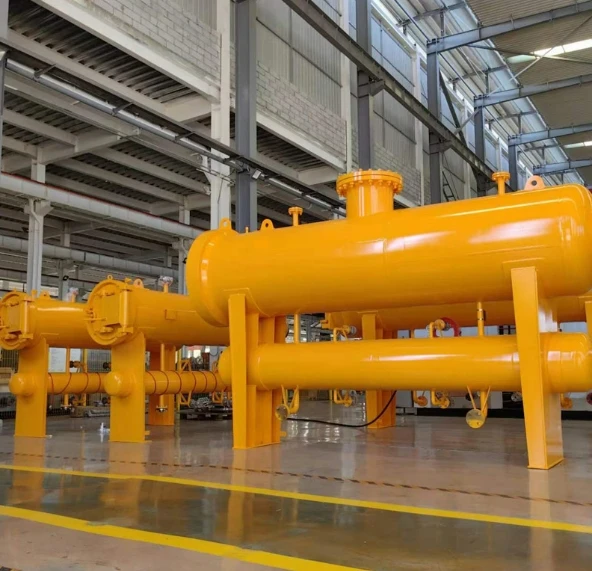
Nov . 21, 2024 05:41
Back to list
filter separator
Understanding Filter Separators An Essential Component in Industrial Processes
In diverse industrial applications, the efficient separation of liquids and solids from other substances is crucial for maintaining product quality, optimizing operational efficacy, and ensuring environmental compliance. One of the key technologies employed in this process is the filter separator. This article explores the significance of filter separators, their working principles, and their applications in various industries.
What is a Filter Separator?
A filter separator is a device designed to separate liquids and solids from a gas or liquid stream. It comprises two main components a filtration system that removes contaminants and a separator that efficiently divides different phases—such as oil and water—based on their density differences. The primary aim of this equipment is to enhance the purity of the product while enabling recycling or disposal of wastes in a streamlined manner.
Working Principle
The operation of a filter separator relies on the principles of gravity separation and filtration. When a mixture enters the filter separator, it is initially directed through a filtration unit. Here, solid particles—such as dirt, sand, and other impurities—are trapped within a filter medium, often made from materials like fabric, metal mesh, or ceramic.
Once the solid contaminants are removed, the remaining liquid or gas mixture proceeds to the separation chamber. The separator uses gravity and sometimes centrifugal forces to segregate the different phases. In the case of oil-water mixtures, for example, the less dense oil will accumulate at the top, while the denser water settles at the bottom. This phase separation enables easy extraction of the purified product without significant energy expenditure.
Applications Across Industries
filter separator

Filter separators are integral to various sectors, including oil and gas, pharmaceuticals, food and beverage, and wastewater treatment. In the oil and gas industry, filter separators play a vital role in enhancing product quality. They are employed to separate free water and solid impurities from crude oil before it is transported via pipelines or refined.
In the pharmaceutical sector, stringent regulations necessitate high levels of purity in products. Here, filter separators are used to ensure that any contamination is removed from drug formulations, thus safeguarding consumer health and maintaining industry standards.
The food and beverage industry also benefits from filter separators by ensuring that oils used in food processing are purified, thereby increasing shelf life and improving taste. Similarly, in wastewater treatment, filter separators assist in treating effluent by removing solids and oils, thus contributing to environmental sustainability.
Benefits of Using Filter Separators
The adoption of filter separators offers numerous benefits. Firstly, they enhance product quality by ensuring the removal of unwanted particulates, leading to fewer defects and higher customer satisfaction. Secondly, they improve operational efficiency by streamlining the separation process, thereby reducing downtime and maintenance costs.
Additionally, filter separators contribute to environmental protection by promoting waste minimization and proper waste management. By recovering valuable resources from waste streams, industries can minimize their ecological footprint, adhering to sustainability goals.
Conclusion
In summary, filter separators are essential components in many industrial processes, ensuring the effective separation of liquids and solids. Their operational principles, combined with their versatile applications, make them invaluable in maintaining product quality and operational efficiency. As industries continue to emphasize sustainability and environmental responsibility, the role of filter separators is becoming increasingly significant in promoting cleaner and safer industrial practices. Understanding and implementing these systems will be crucial for industries aiming to enhance productivity while adhering to rigorous environmental standards.
Next:
Latest news
-
Safety Valve Spring-Loaded Design Overpressure ProtectionNewsJul.25,2025
-
Precision Voltage Regulator AC5 Accuracy Grade PerformanceNewsJul.25,2025
-
Natural Gas Pressure Regulating Skid Industrial Pipeline ApplicationsNewsJul.25,2025
-
Natural Gas Filter Stainless Steel Mesh Element DesignNewsJul.25,2025
-
Gas Pressure Regulator Valve Direct-Acting Spring-Loaded DesignNewsJul.25,2025
-
Decompression Equipment Multi-Stage Heat Exchange System DesignNewsJul.25,2025

